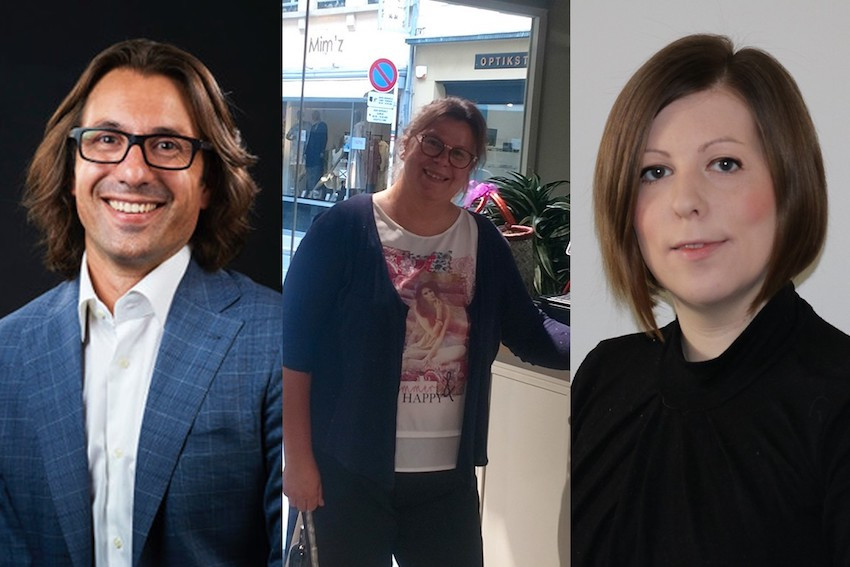While the crisis is endangering many companies and makes them fear bankruptcy, others are being created, bringing a glimmer of hope. Like Comtesse du Barry, a French delicatessen located in the capital’s upper town since 15 May.
“I was hit by the crisis a week before the store opened,” says Estelle Rauscher, project leader and manager of the franchise. The opening planned for 25 March had to be postponed. During this time, it was impossible to rely on deliveries, since the store was not receiving any products from its French suppliers. With rent due and without government assistance, the shop was considered a food business (meaning it could open during the lockdown period).
Opened with just 9 out of 300 products
There was no question of giving up, however: “When you are an entrepreneur, you are courageous and daring,” said Estelle Rauscher, proudly. After confinement, she only opened with nine products. With her team of two employees, they gave everything to ensure that customers entered their store.
A few weeks later, it finally had a complete range of around 300 “100% French” products, from foie gras to madeleines and calissons. Its manager, who will be 52 at the end of the month, has even set up a food service on site. She draws a positive assessment: “People are happy.”
“Of course, I didn’t expect miracles,” she admitted. The manager downgraded her revenue forecast by about 40%. “I am within the objectives of the second business plan", she declared. The goal is, “that the company survives and that we gradually gain strength.”
The new entrepreneur, who has spent nearly twenty years as an employee in the trade, has no shortage of plans for the future. She is already considering the opening of a second point of sale “perhaps in the form of a pop-up store”, at the Cloche d’Or shopping centre or in Kirchberg, and is developing its website in order to offer online orders for here the end of the year. A way to protect themselves in the event of a second lockdown.
Postponed marketing projects
“This is not really the scenario I had in mind,” Marie-Caroline Dumas said with a laugh. She registered her communication agency Madi & Co in early March, a week before confinement. “This is a project that I had already had since the end of 2019, I did not imagine myself stopping it,” she said.
The beginnings were a little more complicated than expected. “It was not an easy time, my contacts had to deal with the crisis at home first,” said the 34-year-old CEO, who has worked in marketing for several years. The first project, which she planned to focus on in her first few months, has been postponed. She put it into perspective: “Fortunately, I have the opportunity to be able to work remotely and interact with my prospects via videoconference.”
Dumas took the opportunity to continue training and discussing with other entrepreneurs. “The support from the not-for-profit organisation Nyuko [which supports entrepreneurs who are starting out in Luxembourg] has helped me stay the course without being discouraged.”
Today, she is focuses on ensuring that her business takes off. “Being a small business is an advantage in times of crisis, it allows you to be more flexible.” The entrepreneur has five clients (associations, manufacturers, administrations, etc.) with projects that are spread out after the start of the school year. “I see the light at the end of the tunnel,” she said. “In terms of turnover, I’m pretty happy, because I’m pretty much on target and I live from my activity." In addition to diversifying the client portfolio, she hopes to reach +20% in revenues in 2021.
Demonstrations at a standstill
Jorge de Oliveira had already taken the plunge before covid-19, but he took advantage of this period to make his project a reality. “It is during crises that we have to innovate,” he stated.
The 43-year-old left his energy job at the end of 2018 to focus on his smart building business: Smart Cube. The first year was mainly used to make himself known to clients. It was in March 2020 that he put his “Cube 4 services” platform online, in which he invested €200,000. “If there is an outage in your home, it notifies you through an app. It asks you if you want to take care of it yourself and if not, it contacts a craftsman,” said its founder.
An innovative idea to “bring added value to smart buildings”, he explained. It works as well for detecting a leak, a heating failure, or for an intrusion. An already smart or classic house will have to be “digitised” to use the platform. A subscription costs between €19 and €39 per month depending on the features requested.
Covid-19 put the demonstration phase on hold. They could not start until the end of June, sometimes doing demonstrations via videoconference. The entrepreneur has yet to sell any subscriptions, but is not discouraged. “You have to take the time to explain to people what is possible, it doesn’t happen overnight. From the start, I knew I wasn’t going to sell right away.”
He expects the platform to bring him €4m in 2025. He said that he has already had some interested customers. For the moment, he relies mainly on smart building projects that allow him to generate the turnover--which he would not disclose--that he was hoping for and that he wants to triple in 2021.
March 2020 also marked the agreement for a bank loan, which will allow him to hire his first employees from September and invest for the future.
Solid interest
These three new companies are not the only ones to have braved the covid-19 pandemic. Nyuko received 230 requests from entrepreneurs wanting to launch a company between March and mid-August 2020, compared to 302 over the same period the prior year.
